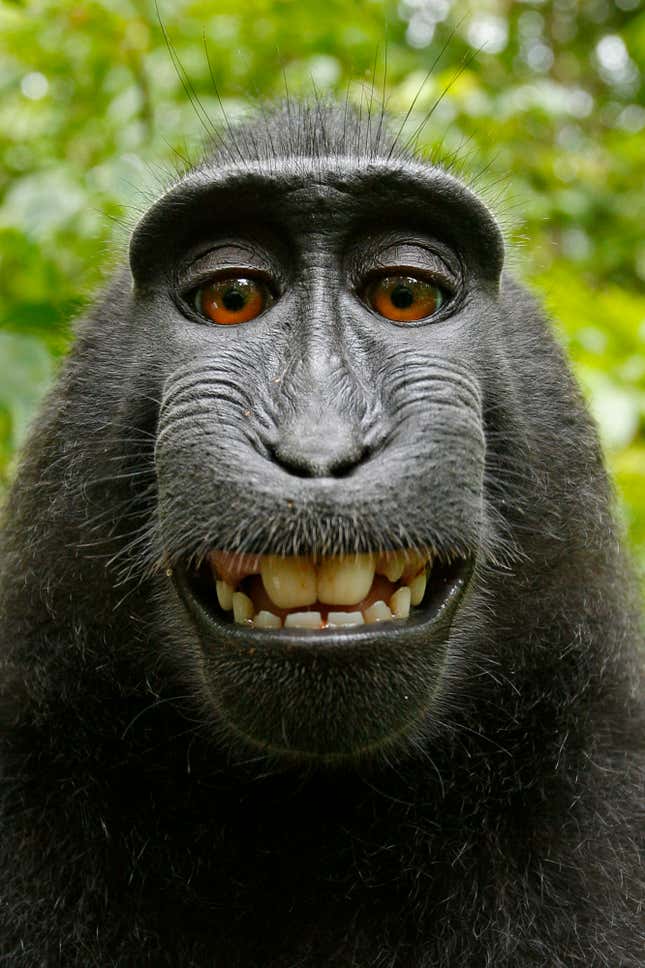
When a monkey commandeered a nature photographer’s camera on a small Indonesian island a few years ago, the results were extraordinary. Among the images captured by the crested black macaque were a few amazing images of himself.
Those monkey selfies made headlines back in 2011, and two of the photographs made their way to the Wikipedia page for the monkey’s species, which is endangered. Wikipedia only uses images that are in the public domain, but the feeling was that, since the monkey snapped the photo, no one could claim the copyrights to it.
“This file is in the public domain, because as the work of a non-human animal, it has no human author in whom copyright is vested,” Wikipedia’s collective band of editors explained.
The nature photographer, David Slater, felt otherwise. He sent a takedown request to the Wikimedia Foundation, which operates Wikipedia, claiming that the photographs belong to him because they were taken with his camera.
“We didn’t agree, so we denied the request,” Wikimedia said in a new report about takedown requests it has received. The organization clearly highlighted the monkey selfie dispute in an effort to draw attention to its broader campaign against censorship. It also revealed which Wikipedia pages have been removed from European search engines under new “right to be forgotten” rules.
Questions of selfie intellectual property aren’t limited to animals. It’s not clear, for instance, who owns the copyright to the now-famous Oscar selfie: Ellen DeGeneres, who coordinated the photo? Bradley Cooper, who actually took it? Samsung, which made the camera and played a role in arranging the stunt? Or perhaps the Academy of Motion Picture Arts and Sciences, which hosts the Oscars? And does it matter that the selfie was distributed on Twitter, a social media platform?